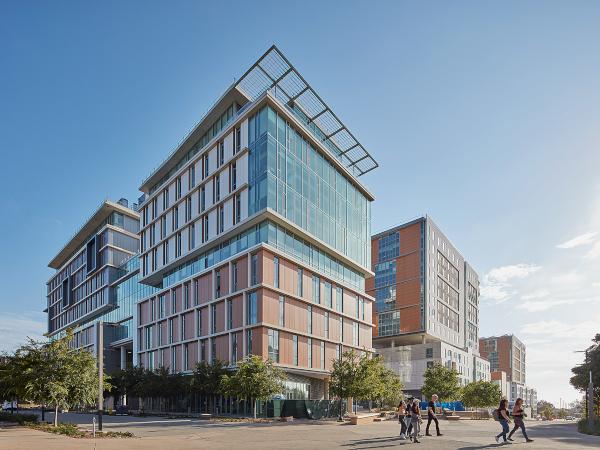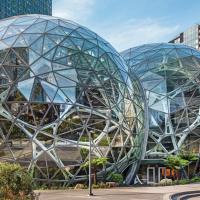
Date: 16 April 2024
Vitro Architectural Glass announced it has updated its third-party verified Environmental Product Declarations (EPDs) so that its architectural glass products all meet the Top 20% Low Embodied Carbon (LEC) material category based on standards set by the Inflation Reduction Act of 2022 and the U.S. General Services Administration (GSA).
On May 16, 2023, the GSA announced new standards for products considered LEC. These standards require that products offer a Type III EPD with a Global Warming Potential (GWP) value expressed in kilograms of carbon (CO2) equivalent per metric ton.
With a GWP of 1,240 kilograms of CO2 equivalent, all Vitro architectural glass products meet the Top 20% LEC material category and fall into the “Most Preferred” standard of products, which requires an embodied carbon content under 1,331 kilograms of CO2 equivalent.
“Vitro takes pride in being the industry leader in environmental performance and sustainability, and we strongly believe in transparency and establishing a benchmark to measure our environmental performance progress,” said Paul Bush, Vice President of Technical Services, Sustainability & Government Affairs, Vitro Architectural Glass. “We’re proud to say that all our products meet GSA’s most preferred LEC standard and that we continue to lower our embodied carbon footprint. Being an industry leader in sustainability is a testament to our production teams and research and development teams, who continually work to improve our environmental performance further.”
Vitro’s continued efforts to lower GWP include more efficient use of batch material, implementing furnace efficiency and design improvements, installing energy-efficient lighting and regulating equipment and driving supplier improvements.
A major factor in lowering GWP is Vitro’s patented oxy-fuel furnace technology which melts glass raw materials such as sand and silica by carefully mixing pure oxygen (instead of air) with natural gas, significantly improving energy and environmental performance. This technology reduces energy consumption in glass-melting furnaces by as much as 20% and greenhouse gas emissions by 50%.
These improvements have created opportunities to reduce embodied carbon in production, which is otherwise challenging because flat glass manufacturing accounts for more than 75% of the GWP of insulating glass units (IGUs).
In 2017, Vitro became the first North American manufacturer to publish third-party verified EPDs for its flat glass and processed glass products. Vitro was also the first U.S. glass manufacturer to have its entire collection of architectural glass products earn Cradle to Cradle Certified® status.
For more information about Vitro Architectural Glass products, visit vitroglazings.com.
 600450
600450














Add new comment